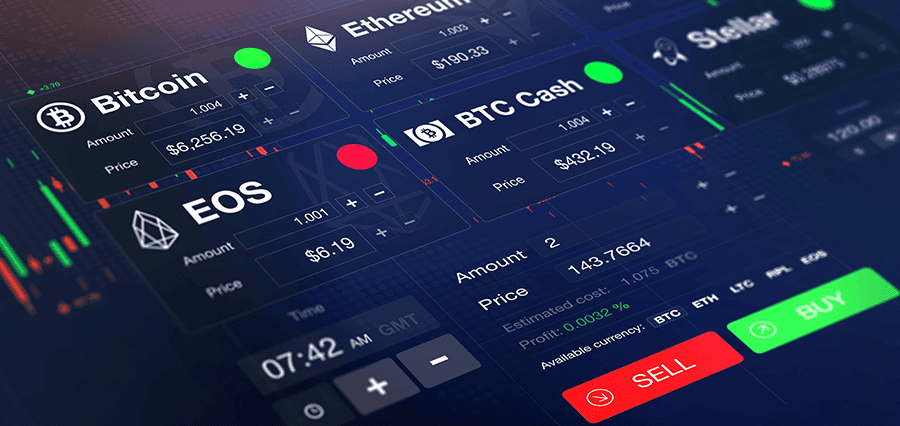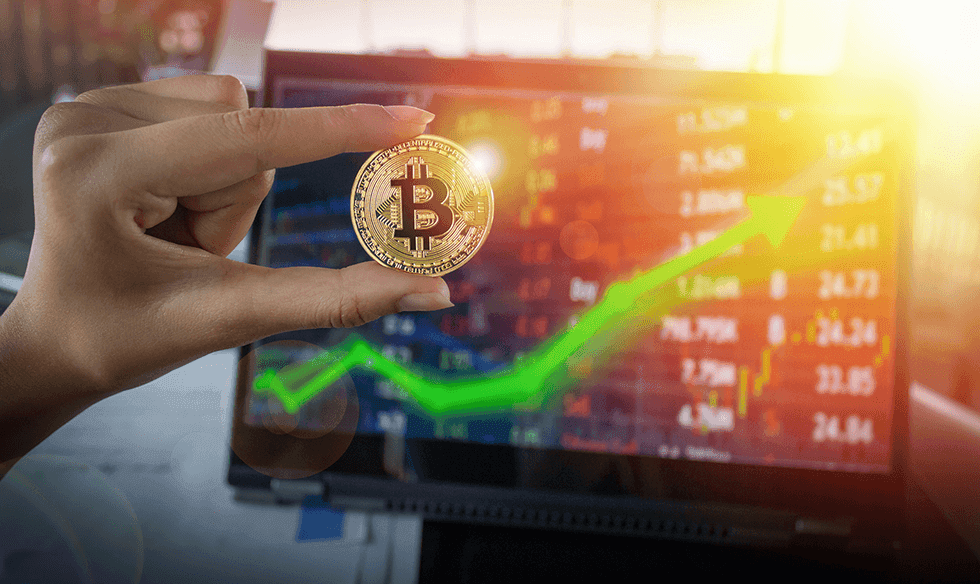
While there are significant benefits to crypto trading, crypto assets are also highly volatile – thus meriting the question about whether crypto trading really is a form of gambling.
When is cryptocurrency trading behavior closer to gambling?
When a crypto investor trades with a short-term mindset, and the hope of capitalizing on a short-term ‘boom’ before withdrawing their assets, one could argue it leans closer to gambling behavior. Behaviors such as buying a dip before immediately selling upon signs of a peak, signal a lack of willingness to commit to a long-term investment strategy – and hence point towards gambling.
A lack of diversification
Gambling is exciting. The higher the risk, the more rewarding it tends to feel. Banking all of your hopes and money on one instrument is typical gambling behavior, because the heightened risk only elevates the experience of it all. Similarly, a crypto investor whose sole avenue of investment is crypto trading, while being bereft of any conservative and traditional emergency fund allocation, or while utilizing the entirety of their savings, can be said to be indulging in gambling. The lack of a diversified investment strategy paired with the urge to adopt an “all or nothing” attitude towards cryptocurrency, is a tell-tale sign of gambling behavior.
A lack of research
Let’s face it, crypto assets are certainly volatile. This high volatility paired with the excitement of profiting from a new class of financial asset, creates the perception that crypto investing involves a high appetite for risk – and risky decision-making. However, this also leads some investors to assume that cryptocurrency trading inherently equates to a significant amount of rolling the dice on unfamiliar coins. When an investor doesn’t perform adequate research into established and emerging projects, their functionalities, and the path to real-world use of these currencies, it is akin to taking a gamble. Needless to say, this behavior of risking inordinate sums of money on unknown projects would also be considered gambling since it is nothing more than a coin flip.
A lack of balance
Ultimately, whether cryptotrading is philosophically closer to gambling or not, it can still become akin to a gambling problem. Whether one’s cryptocurrency trading amounts to gambling is a matter of introspection and taking an honest look at their investing behavior – and then assessing whether it actually is closer to gambling. If cryptocurrency trading leads to an addiction to risk-taking, a decrease in the overall quality of your life, and a breakdown of relationships with your friends and family, perhaps your relationship with cryptocurrency trading may actually be a gambling habit, and help is readily available.

When you analyse the risk involved, there are some similarities between traditional gambling and crypto trading.
When is cryptocurrency trading behavior closer to investing?
Just as there is a method to the madness of the stock market, the same can be said for crypto trading – since crypto assets are also speculative investments with a certain degree of volatility. How can one tell when a trader is using a cryptocurrency trading platform as a genuine means of investment? Once again, the answer lies in certain key behaviors.
The presence of a game plan
Investors – of any kind – never invest in something they wouldn’t hold on to over a reasonable time horizon. That’s because investors don’t have a myopic outlook, and only spend their finances on assets they truly believe, based on several factors, will appreciate over time – and more importantly, give said assets the chance to appreciate. When a trader purchases cryptocurrency with a genuine belief in the technology, principle, and future value of crypto assets, and is willing to commit to holding on to them for a long period of time through peaks and falls, it could be said that they’re serious investors. Investing requires an undoubtedly long-term mindset and crypto investments are no exception – anything else falls into gambling territory.
The presence of safeguards
Another thing that prudent investors do is to never place all their eggs in one basket. An investor always accounts for potential losses, and hence uses a diversified investment strategy backed by a viable fallback fund in case any or all investments fail. They tend to accumulate a wide range of financial assets, hence creating multiple revenue streams and increasing their odds of a massive payday if even one of these assets truly peaks.
Crypto assets can be a very valuable part of a diversified pool of assets, and as part of a sensible investment strategy. If one isn’t placing all their bets on crypto and approaching it with this exact investing mindset, one can definitely say that they aren’t gambling on crypto. Investing is all about taking calculated risks, and investing what one can afford while having a diversified portfolio ensures that the failure of one asset doesn’t take the whole portfolio down.
No over-reliance on intuition
It also goes without saying that an investor never so much as opens a cryptocurrency trading platform without having done significant research into the assets they’re planning to invest in. Investors rely on a mix of intuition and research while investing, and one is never a substitute for the other – the same applies to crypto investing too.
Crypto trading can be either a gamble or not – it is up to you
Clearly, there are two ways to approach cryptocurrency trading – one in a more methodic, calculated manner, and the second that’s largely akin to gambling. Which category of trader one falls into largely depends on the trading behaviors they exhibit. The same can be said for how one approaches the stock market as well, which is one aspect in which crypto trading and stocks are exactly the same. When you log in to a crypto trading platform, are you logging in to invest or gamble? While there’s nothing fundamentally wrong with either approach, the answer is for you to decide; and remember, like coins and projects and stocks and companies, there is an upside and downside to everything.
Frequently Asked Questions
We’ve touched upon the key points of differences between crypto gambling and crypto investments, alongside the key problematic behaviors to look out for. We hope you have a better perspective on the topic now as we take you through some frequently asked questions like the regulation of crypto trading.
What are the main risks involved in crypto trading?
Crypto assets are speculative, highly volatile investments. The same factors that add to crypto’s appeal, also significantly add to its risk - like the fact that these assets aren’t globally accepted as legal tender yet, the fact the currency is largely driven by speculation, and that no one really knows a clearly defined path to success in the long term.
Are there any similarities between crypto trading and gambling?
Yes there are, but to the same extent that one would say that the stock market shares these similarities too. It all depends on one’s investing behaviors. There’s no reason why free crypto trading can’t be a part of a diversified investment portfolio with a plan to mitigate risks. In fact, cryptocurrencies are becoming a large part of the traditional gambling casinos as payment options.
Is crypto trading regulated?
Several U.S. government agencies such as the SEC, the CTFC, and the IRS are making efforts to regulate the trade of crypto assets. The industry already has safeguards in place but these should see increased regulation soon. Remember that you must never forget tax obligations to the IRS while trading to make income on any financial instrument.


